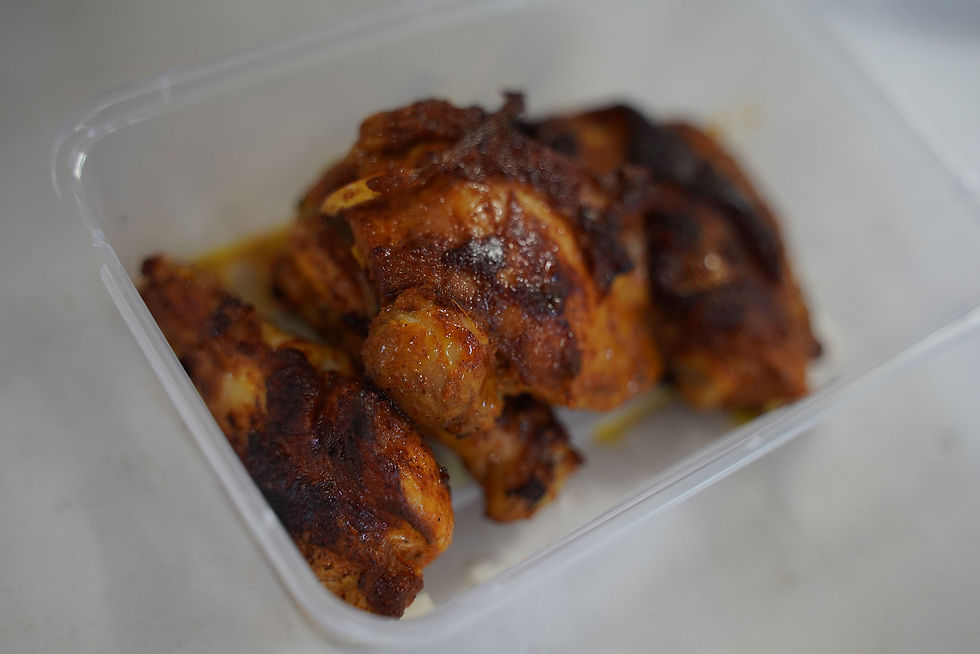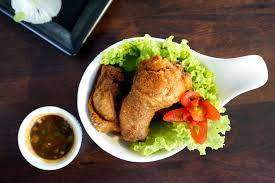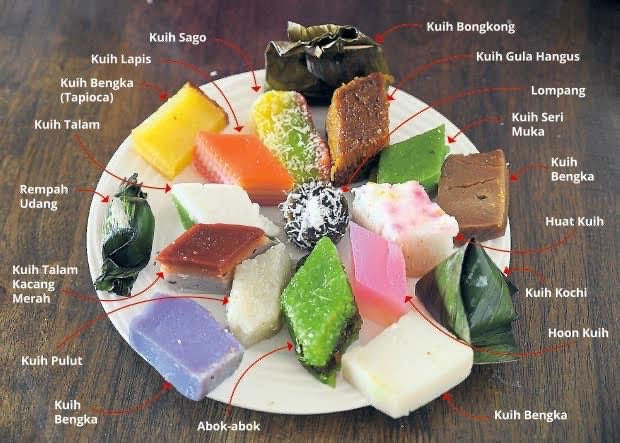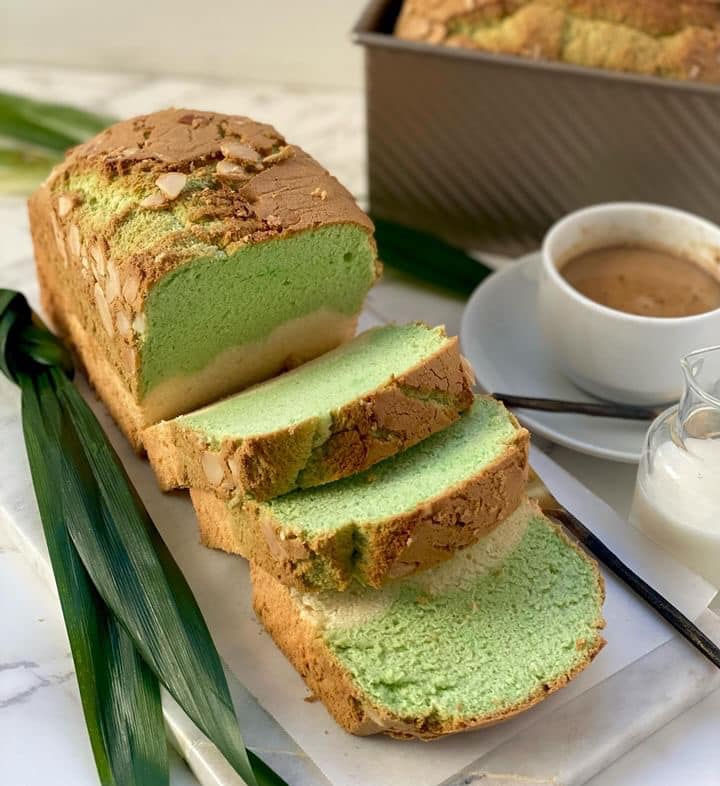Inchi Kabin, did you even know it's a cuisine name
- My Blue Tea
- Aug 13, 2025
- 4 min read
Inchi or Inche Kabin is a Nyonya Fried Chicken cuisine, heritage food
#Throwback to the good times in Melbourne with our friends at the Peranakan Association Melbourne! 🥢✨ At Taste of Nyonya-Melbourne, we had the pleasure of sharing the secrets behind the beloved Inchi Kabin—a fragrant, crispy Nyonya-style fried chicken—thanks to the talented Karen Tan Chatwin.
What an unforgettable day of cooking, laughter, and celebrating the rich flavours of Peranakan cuisine with an amazing community. Who else misses this? 😍 Here's our version of Inchi Kabin recipe with Meat Curry base.
Inchi Kabin history
"Inchi Kabin” is a highly unusual name for deep fried chicken! Apparently “inchi kabin” used to be known as Encik Kabin, which means Mr. Cabin. The peculiar name of this dish is perhaps derived when the cook in the ships would call the sailor or Captain (Encik/Inchi) from the cabin (Kabin) down for the meal when the chicken was ready. It is basically a twice-fried chicken seasoned with mild aromatics and matched with a sauce that includes Worcestershire sauce. Its mild nature and the use of the English seasoning are telltale signs that this dish is an adaptation for the Western palate, most likely British since they ran Penang island for a long period of time.
Peranakan or Nyonya cuisine comes from the Peranakans, descendants of early Chinese migrants who settled in Penang, Malacca, Singapore and Indonesia inter-marrying with local Malays and combines Chinese, Malay and other influences.
There is also Peranakan Indians, also known as the "Chitty" or "Chitty community," were a unique group that emerged in early Penang and Singapore through the intermarriage of Indian traders (particularly Tamil) and local Malay women.

Inchi Kabin - Nyonya Fried Chicken Recipe
Ingredients:
*1kg chicken (cut into pieces)
*Oil for deep frying
Seasoning:
*50 grams @my.blue.tea Meat Curry base powder
*1 tsp salt
*50 grams @my.blue.tea coconut milk powder (diluted in water)
*a handful of Coriander roots chopped
*1-2 tspn five spice powder (optional)
Note : Inche Kabin or Inchi Kabin normally uses bigger pieces of chicken like thighs and drumsticks

Inchi Kabin Dipping sauce:
*1 red chilli, seeded and cut into strips
*Juice of half a calamansi lime (use lime or lemon, optional)
*1 tsp sugar (optional)
*1 tsp dry mustard
*3 tbsp Worcestershire sauce
##Optional use Borneo Hot Sauce (Green Harvest)
Method:
(1) Marinate the chicken with the Meat Curry base with Coconut milk powder for 3 hours, advisable to marinade overnight.
(2) In a frying pan, deep fry the seasoned chicken until ¾ cooked and let cool.
(3) Heat the oil again till very hot and deep fry for approximately 1 minute or when sizzling subsides. Remove the chicken. Allow the oil the heat up again and repeat process, twice till very crisp and golden brown.
(4) Mix the dipping sauce in a small bowl and serve the fried chicken with it.
NYONYA COOKING
Nyonya cooking is a the result of beautiful fusion of Chinese ingredients and the unique spices and cooking techniques of the Malay and Indonesian communities. This blend creates Peranakan interpretations of Malay and Indonesian cuisine, known for their tangy, aromatic, spicy, and herbal flavours.
In other instances, the Peranakans have adopted Malay cuisine as part of their taste palate, such as assam fish and beef rendang.
Key ingredients in Nyonya cooking include : coconut milk, galangal (a subtle, mustard-scented rhizome similar to ginger), candlenuts as both a flavoring and thickening agent, laksa leaf, PANDAN leaves (Pandanus amaryllifolius), belachan (shrimp paste), tamarind juice, lemongrass, torch ginger bud, jicama, fragrant KAFFIR LIME LEAF, rice or egg noodles and cincaluk – a powerfully flavoured, sour and salty shrimp-based condiment that is typically mixed with lime juice, chillies and shallots and eaten with rice, fried fish and other side dishes.
CONTRASTS IN NYONYA COOKING
Nyonya cooking features regional variations that reflect local influences. Dishes from Penang, located in northern Peninsular Malaysia, often incorporate Thai elements, with a more generous use of tamarind and other sour ingredients.
In contrast, dishes from Singapore and Malacca display stronger Indonesian influences, such as the use of coconut milk. A classic example is laksa, a spicy noodle soup that comes in two versions: the tangy asam laksa from Penang and the creamy coconut milk-based laksa lemak from Singapore and the southern regions of Peninsular Malaysia.
Examples of Nyonya specialities include otak-otak, a popular blend of fish, coconut milk, chilli paste, galangal, and herbs wrapped in a banana leaf; Ayam Buah Keluak, a distinctive dish combining chicken pieces with nuts from the Pangium edule or kepayang tree to produce a rich sauce; and Itek Tim, a classic soup containing duck, tomatoes, green peppers, salted vegetables, and preserved sour plums simmered gently together.
NYONYA DESSERTS / NYONYA KUIH or CAKES

Nyonya desserts feature a delightful array of colourful cakes (kuih) and sweet, sticky treats. These desserts often highlight the use of natural ingredients like Pandan, coconut, and rice flour, resulting in vibrant Flavours and textures.
Popular kuih include kuih lapis, a layered cake with a rich Pandan flavour, and Kuih Talam, a coconut and Pandan dessert with a soft, pudding-like consistency. Other favourites include ondeh-ondeh, chewy balls filled with palm sugar and coated in grated coconut, and putu mayong, steamed rice cakes filled with sweet coconut.
These desserts are not only visually appealing but also carry the essence of Nyonya culture, blending traditional techniques with a variety of local flavours. Perfect for celebrations or simply to satisfy a sweet tooth, Nyonya desserts are a true testament to the culinary artistry of this unique cuisine.
We can't wait to reunite with our friends at Peranakan Melbourne! Until then, savour this beloved recipe—'Inchi Kabin,' a crispy, fragrant Nyonya fried chicken classic.










Comments